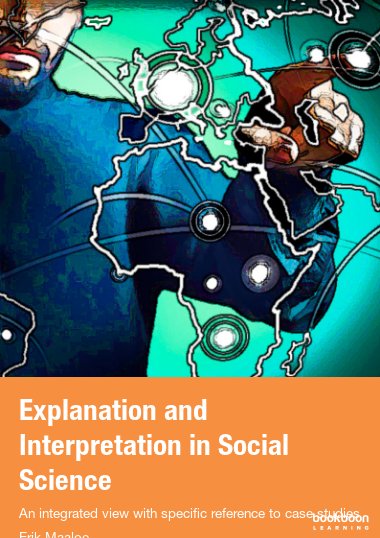BOOK II offers a critique of interpretations made to look like explanations, expretations. Next it offers a more precise expansion of explanation as a multi-level endeavour. This not only make it possible to integrate different scientific disciplines into a whole, it may also help us to get a grasp of the social change along a time line. A perspective, which the author conceived during his work with longitudinal cross-comparative case studies and which he here develops, step by step, into a working model for emergence.
The last chapter is a discussion of and an illustrative new emphasis on understanding as the unique feature of case research as an experience of enrichment and a liberation of the researcher from preconceived – all too often second hand - perceptions. This further more add new dimensions to subjective-objective controversy surrounding case studies. Binding interpretation, explanation and understanding together.
